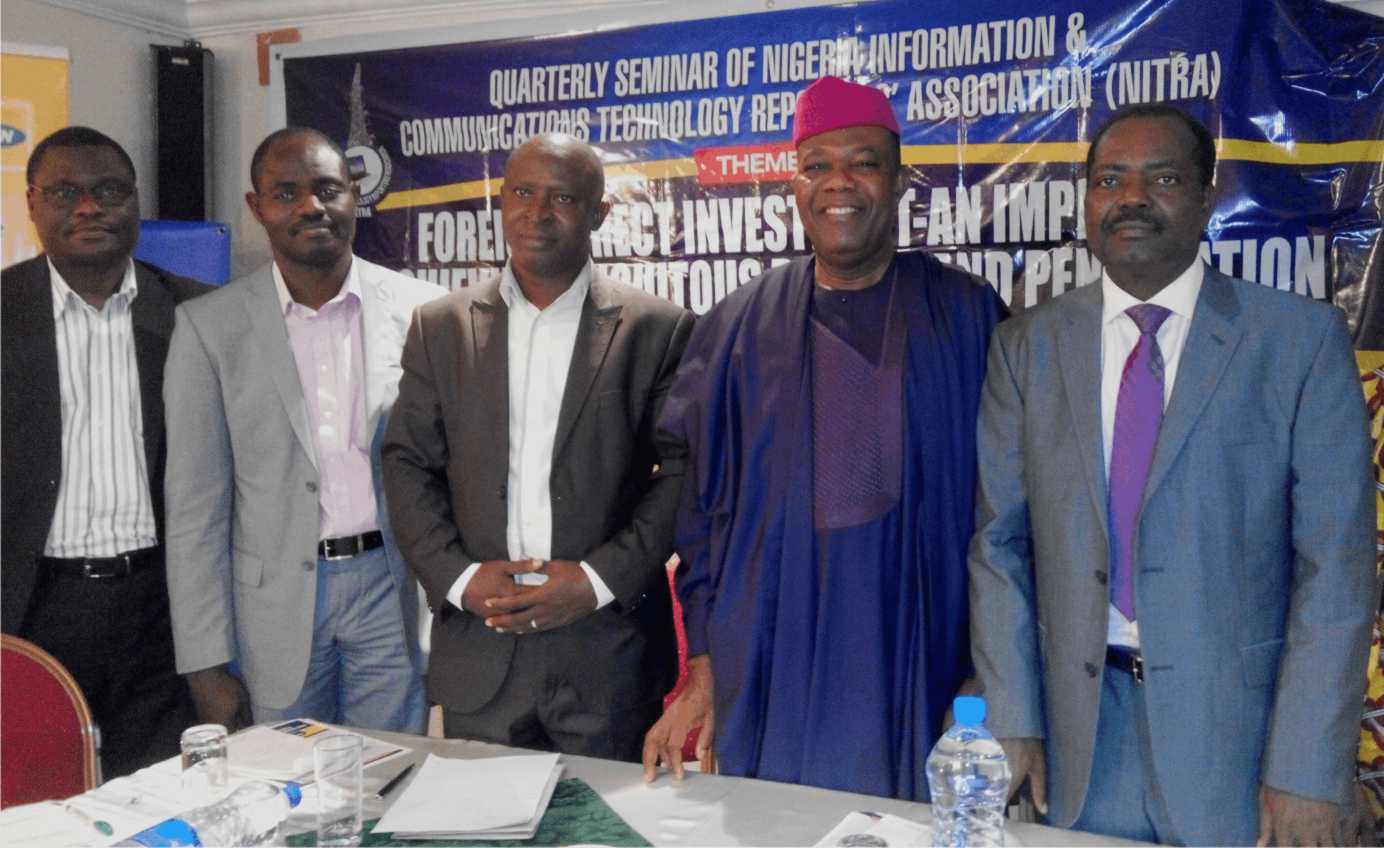By SAMSON AKINTARO
When the Federal Government through the Ministry of Communication Technology unveiled the National Broadband Plan 2013-2018 two years ago, it was greeted with accolades and commendations from all stakeholders. The enthusiasm was high in the industry that, at last, the country had started the broadband revolution on a good note with strategic plans and modest target of 30 per cent penetration by 2018. However, two years after, the reality on ground seems to have dampened the spirit of stakeholders with the Association of Licensed Telecommunications Operators of Nigeria (ALTON) declaring the target unrealisable.
According to ALTON, between 2013 when the target was set and now in 2015, nothing has changed, especially with challenges facing operators over Right of Ways issue, vandalism as well as multiple taxations, and with such scenario, Nigeria cannot be talking of 30 per cent penetration in less than three years’ time when the current broadband penetration is still below 10 per cent and only in the urban areas of the country. Speaking at the second edition of the quarterly seminar organised by the Nigeria Information & Communications Technology Reporters’ Association (NITRA) held in Lagos, ALTON represented by its Secretary General, Mr Gbolahan Awonuga, noted that as far as rolling out physical infrastructure is still a challenge in the country, broadband penetration cannot increase.
Earlier in the year, the President of the Association of Telecommunications Companies of Nigeria, ATCON, Engr. Lanre Ajayi, had also expressed the concern that the country might fail to meet the target with the way things were going, except the government would take drastic steps to address some of the challenges facing the industry.
In a keynote presentation at the NITRA seminar, MTN Nigeria also raised concerns about the challenges of Right of Ways and vandalism, noting that the process of obtaining Right of Way is still as cumbersome as ever before in this country. Speaking on the topic: ‘Foreign Direct Investment-an Impetus to Achieving Ubiquitous Broadband Penetration in Nigeria’, Mr Olusegun Salami, Senior Manager, Transmission Access Planning Network Group at MTN, noted that Broadband penetration in Nigeria is far from being ubiquitous as the current less than 10 per cent penetration is only in the cities. Hence, he observed that more foreign direct investments (FDIs) are required to achieve broadband ubiquity in Nigeria.
However, for the FDIs to come, he said the government must be willing to release the right spectrum for broadband development and also address some of the challenges operators are facing in the industry, while putting in place the right policy framework to ensure that the investors are able to get returns on their investments when they come.
Meanwhile, Dr. Emmanuel Ekuwem, group chairman, Teledom Group and chairman of the NITRA seminar, has warned that quest for FDIs must be balanced to allow local investors participation in creating values in the system too. According to him, theme for the seminar: Foreign Direct Investment: An Impetus to Achieving Ubiquitous Broadband Penetration”, is timely now that the Federal Government is concerned with deepening the economy for the improvement of the lives of the citizens.
He however, said FDIs can be regarded as beneficial when Nigerians could create “contents” to complement demands from the outside world, generate employments, and protect the intellectual properties of the people and profit from the internet economy.
“It has become common saying that Broadband is a service to the people. Before now, the slogan has been ‘NarrowBand will deliver narrow future, broadband being broad future’. The important thing is that broadband has to run on infrastructure. NCC has done a good job by trying to unbundle the service provising scope, however, there are rooms for improvement.
“Content is key too. We cannot be claiming for improved broadband penetration without considering how to create contents. Infrastructural investments can be sustained by resources generated from content. So, FDI and broadband can be as broad as Nigerian want it, but we need to balance broadband penetration with the content we are creating, so we don’t invent digital imperialism,” he said.
Engineer Lanre Ajayi, president of ATCON, said operators in the industry align their thoughts with NITRA that 10% broadband penetration is slow; but every stakeholder must not shy away from the multifaceted challenges faced operators to deploy services.
He said unless issues on Right of way (RoW), multiple taxation, security, indiscriminate shut down of base stations; to name a few, are addressed, inability to get return on investments has become worrisome to the investors. He called for joint effort in tackling the identified challenges to move the nation telecommunications industry forward.
“The truth is that 30% broadband penetration is not too ambitious considering the fact that countries like Kenya, South Africa, Ghana, etc have achieved even more than that. We have undersea cables already at the seashores of Lagos, the question is why the delays in taking the capacities to the last mile, especially the hinterlands. Investors are not happy about the delays but are faced with challenges. These have to be addressed to push penetration,” Ajayi said.
Earlier in his welcome address, the President of NITRA and Infotech Editor of This Day Newspaper, Mr. Emma Okonji called on stakeholders and government agencies to step up activities and investments that will boost broadband access to Nigerians as soon as possible, saying better access and affordability to broadband is key to the digital economy Nigeria is aspiring for.
“Today, broadband penetration has struggled to grow from 6 per cent in 2013, to 8 per cent in 2014 and currently stands at 10 per cent penetration, even though the National Broadband Plan is targeting 30 per cent growth in 2018. As industry watchdog, NITRA is not pleased with the growth rate in broadband penetration in the country, vis-a-vis the fast growing number of internet users in Nigeria, which currently stood at 88 million,” he said.

